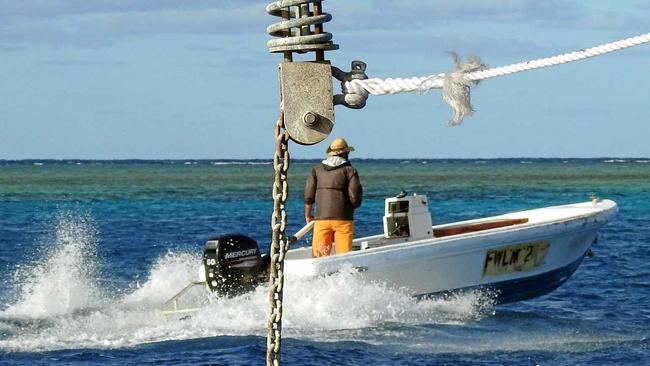Anglers say government mismanagement behind shark attacks
Fishermen say the state government is waiving the protected status and culling the wrong species

Rockhampton
Don't miss out on the headlines from Rockhampton. Followed categories will be added to My News.
CENTRAL Queensland fishermen believe government mismanagement is behind an explosion in the number of large sharks in popular fishing spots off the Capricorn Coast.
They are speaking out as debate rages over the rollout of baited drumlines around the Whitsundays' Cid Harbour in response to a fatal attack this week.
The not-for-profit Jolly Roger Fishing Club has condemned continuing mismanagement of local waters by the Queensland Government.
They believe traditional practices, which included fishing for sharks around boats, maintained an environmental balance which has been thrown out of whack by declaring them a protected species.
"20 years ago, there'd be three or four big sharks across all of Swains reef and dozens of little ones," JRFC supporter, Neill Xxavier said.
"Now there are five or six bull sharks, 12 feet and over, at every anchorage, big enough to eat two people in one bite."
"And to add insult to injury, every time there's a kneejerk reaction to a shark attack, the government's waiving the protected status and culling the wrong species," adds commercial fisherman, Ryan Cowley.
The activist groups Sea Shepherd, Shark Conservation Australia and the Humane Society are mounting campaigns against the practice which, they argue, indiscriminately kills other marine life and potentially attracts sharks to the area.
Meanwhile, the Agricultural Industry Development and Fisheries Minister Mark Furner is campaigning to entice overseas investment in aquaculture farms which will directly compete with commercial reef fishing.
According to the Jolly Rogers, the Government allows private corporations to snap up the quotas which regulate how many tonnes of tuna can be fished in a given year.
"Once we've reached our reduced quota, they charge us $6/kilo which is just about what the fish reach on the market," says Mr Cowley.
"We might as well sit at home on the dole rather than pay to run our boats for no return."
The collective is also up in arms over the mandatory satellite tracking systems (VMS) which, at a cost of nearly $500 per boat to purchase and $44/month to operate, may comprimise their income and their intellectual property.
"There's no way to fix the VMS boxes at sea so, if one of them fails, we have five days by law to return to land," says JRFC's Stephanie Foote.
The tracking technology, which claims to counter the criminal element who enter green zones, also alerts the government where the locals have located viable fishing spots.
Ms Michelle Voyer, University of Technology Sydney researcher with the Institute of Sustainable Futures, met with Gladstone commercial fishermen earlier this month as part of a Government-funded report into the Fisheries Queensland's effectiveness at engaging with commercial stakeholders.
The report which will be tabled in December aims to propose new ways and tool for improving communication, co-operation and ongoing relationships but, for the Jolly Rogers, it may be a case of too little, too late.
"This is not a problem of perception," says Mr Xxavier.
"It's a problem of policy and for too long the Government has refused to take local fishermen's concerns seriously and to acknowledge our expertise as a collective."
The office of Agricultural Industry Development and Fisheries Minister Mark Furner has been approached for comment but had not responded by 5.30pm yesterday.
Originally published as Anglers say government mismanagement behind shark attacks


